Foods that could make your psoriasis worse
You might want to rethink hitting happy hour.
Updated on October 12, 2022
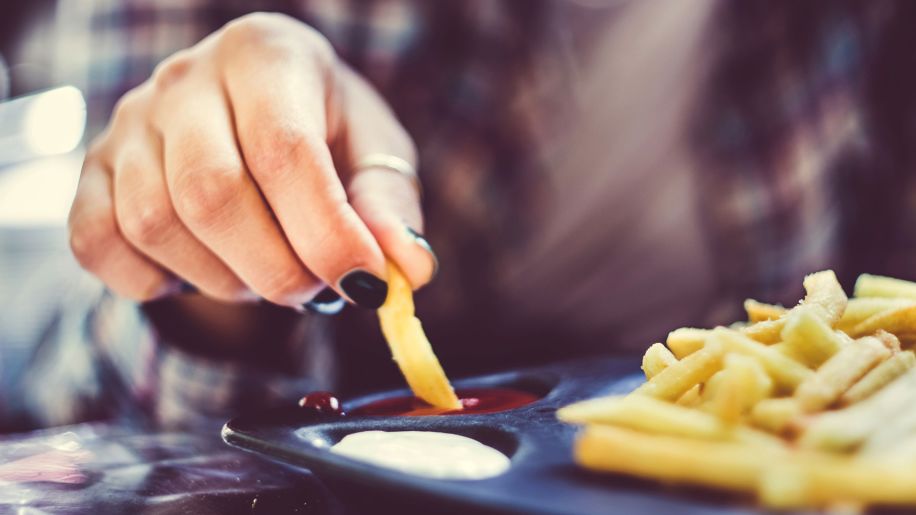
Have you noticed your psoriasis gets worse after eating a cheeseburger? Perhaps you can't have eggplant parmigiana without having a flare-up. Or maybe it's red wine that seems to worsen your red patches.
An estimated 7.5 million Americans have psoriasis. It’s an immune disease that often results in scaly, itchy blotches appearing around your knees, elbows, and scalp, though they can pop up anywhere on your skin. Many things can trigger or exacerbate psoriasis symptoms, including your diet.
The science on food and psoriasis is developing, but these eats are frequently named as no-nos.

Control your weight to ease symptoms
It's believed that being obese increases your risk of psoriasis. Often, the more someone weighs, the worse the condition. Dropping pounds can ease symptoms and may help make treatments work better. To lose weight, improve your health overall—and perhaps relieve your itch—try the following:
- Swap foods high in saturated fat and sugar for fruits, vegetables, lean meats, whole grains, and healthy fats. You can find better-for-you fats in non-tropical vegetable oils, avocados, and nuts.
- Eat moderate portions and try filling half your plate with vegetables.
- Keep a food diary or track your intake on an app. Studies show that those who document their daily eating tend to lose more weight than those who don't.
- Get at least 150 minutes of moderate-intensity or 75 minutes of vigorous-intensity activity per week. When combined with a healthy eating plan, this can boost weight loss.
No specific diet has been proven to reduce psoriasis symptoms. But some research suggests the Mediterranean diet may help some people. Perhaps this is because it can lead to weight loss and reduce inflammation.
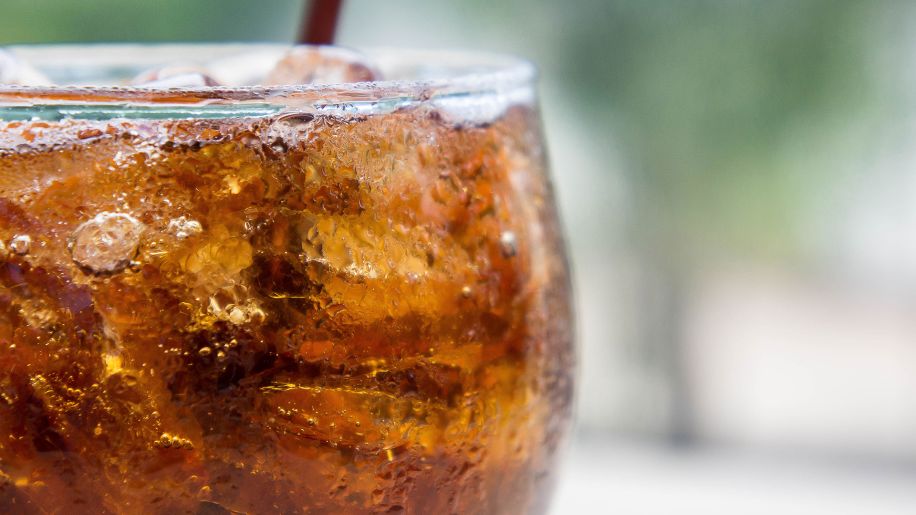
Foods linked to inflammation
Many people with psoriasis also have diabetes and heart disease. All three are considered inflammatory diseases. Some people have found that cutting back or eliminating certain foods linked to inflammation can help. These include dairy as well as foods that contain refined sugars—such as soda, desserts, processed meals, and snacks. Often, reducing these may also lead to weight loss, which can help slash your risk of other conditions, including diabetes and heart disease.
Fatty red meat is also tied to inflammation, plus weight gain and obesity. While red meat hasn't been linked directly to psoriasis, avoiding or limiting foods like prime rib or cheeseburgers may help relieve symptoms. Instead, choose poultry or fatty fish; salmon and mackerel are great picks. And if you must eat red meat, try a leaner cut like top sirloin.

Alcohol
Are you a woman who regularly drinks more than one glass of wine daily, or a man who has three or more beers? You might consider scaling back. Research shows that excess alcohol is linked to higher chances of developing psoriasis. Scientists aren't exactly sure why.
That’s not all. If you have psoriasis already, alcohol may make your symptoms worse. It can also reduce the effectiveness of treatment.
Cutting alcohol out completely, meanwhile, could help slash your odds—and your itchiness. Don't want to give up your nightly Chardonnay? Drink in moderation. That means a maximum of one 5-ounce glass of wine or a 12-ounce beer for women, and two similar servings for men.
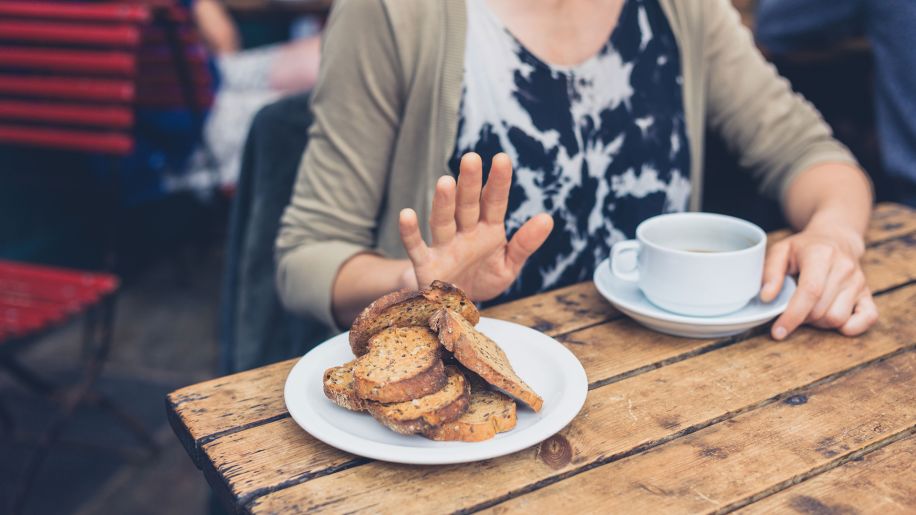
Gluten
Gluten is a protein found in foods like pasta, bread, and cereal. Scientists don't fully understand why, but it seems to trigger psoriasis flare-ups for some people. About 7.2 percent of adults with psoriasis described gluten as a trigger in one 2017 survey in the journal Dermatology and Therapy.
There's evidence, too, that those with psoriasis may have higher odds of developing celiac disease, an immune response to gluten. It's thought that the two conditions have similar origins in the body.
Some experts suggest that a gluten-free diet can reduce psoriasis symptoms for certain people with gluten sensitivity. In that 2017 survey, about 53 percent of those who eliminated gluten reported improvements in their skin. This may have been related to the gluten. But, it may also have been related to the resulting weight loss.
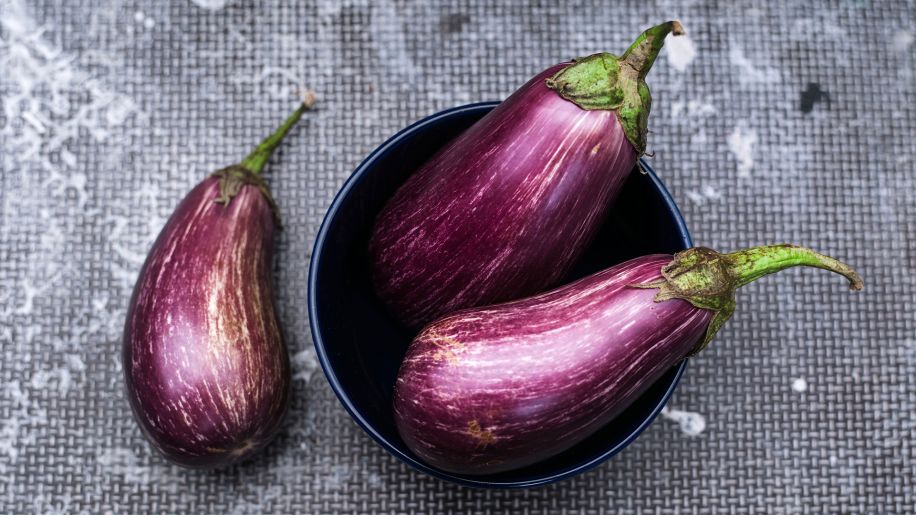
Peppers, tomatoes and other nightshade veggies
Have your itchy, red patches ever become itchier and redder after eating stuffed peppers? While more research is needed, there's a chance they could be related. Though there is little scientific evidence, some people with psoriasis say that nightshade vegetables trigger their symptoms.
If you believe nightshades may be affecting your psoriasis, lay off them for two to eight weeks to see if you notice any improvement in your symptoms.
Gamret AC, Price A, et al. Complementary and Alternative Medicine Therapies for Psoriasis: A Systematic Review. JAMA Dermatology. 2018;154(11):1330–1337.
American Academy of Dermatology. Association between disease severity and body mass index in psoriasis patients enrolled in the Corrona Psoriasis Registry. 2017.
American Academy of Dermatology. Skin Conditions by the Numbers. Accessed October 10, 20222020. Accessed October 20, 2020.
American Heart Association. Dietary Fats. Last reviewed November 1, 2020.
Ford AR, Siegel M, et al. Dietary Recommendations for Adults With Psoriasis or Psoriatic Arthritis From the Medical Board of the National Psoriasis Foundation: A Systematic Review. JAMA Dermatology. 2018;154(8):934–950.
Bhatia BK, Millsop JW, et al. Diet and Psoriasis, Part II: Celiac Disease and Role of a Gluten-Free Diet. Journal of the American Academy of Dermatology. August 1, 2015. 71(2), 350–358.
Phan C, Touvier M, et al. Association Between Mediterranean Anti-inflammatory Dietary Profile and Severity of Psoriasis: Results From the NutriNet-Santé Cohort. JAMA Dermatology. 2018;154(9):1017–1024.
Svanström , Lonne-Rahm SB, Nordlind K. “Psoriasis and alcohol.” Psoriasis (Auckland). August 21, 2020. 2019;9:75-79.
Carter MC, Burley VJ, Cade JE. Weight Loss Associated With Different Patterns of Self-Monitoring Using the Mobile Phone App My Meal Mate. JMIR Mhealth Uhealth 2017;5(2):e8.
Centers for Disease Control and Prevention. Physical Activity for a Healthy Weight. May 15, 2015.
Centers for Disease Control and Prevention. What is Psoriasis? August 18, 2020. Accessed October 27, 2020.
Fuller NR, Fong M, et al. Comparison of an electronic versus traditional food diary for assessing dietary intake—A validation study. Obesity Research & Clinical Practice. November–December 2017, Volume 11, Issue 6, Pages 647-654.Accessed October 20, 2020.
Jensen J & Skov L. Psoriasis and Obesity. Dermatology. 2016;232(6):633-639.
Afifi L, Danesh M, et al. Dietary Behaviors in Psoriasis: Patient-Reported Outcomes from a U.S. National Survey. Dermatology and Therapy. June 2017. 7(2), 227–242.
Barrea L, Balato N, et al. Nutrition and psoriasis: is there any association between the severity of the disease and adherence to the Mediterranean diet? Journal of Translational Medicine. Jan 27, 2015. 13:18.
Wolters M. Diet and psoriasis: experimental data and clinical evidence. British Journal of Dermatology. October 2005. 153(4):706-14.
Mayo Clinic. Weight loss: Feel full on fewer calories. March 22, 2022.Accessed October 20, 2020.
National Psoriasis Foundation. About Psoriasis. October 1, 2020. Accessed October 20, 2020.
National Psoriasis Foundation. Dietary Modifications. October 1, 2020. Accessed October 20, 2020.
Laurenti R, Gubinelli E, et al. Adherence to the Mediterranean diet model and psoriatic disease (skin, joint and metabolic expression of psoriasis. Beyond Rheumatology. August 31, 2020. 2:2.
Paroutoglou K, Papadavid E, et al. Deciphering the Association Between Psoriasis and Obesity: Current Evidence and Treatment Considerations. Current Obesity Reports. 2020. 9, pages165–178.
Johns Hopkins Medicine. Psoriasis Diet: Foods to Eat and Avoid If You Have Psoriasis. Accessed October 12, 2022.
National Psoriasis Foundation. What We Are Learning About Psoriasis and Heart Disease. Accessed October 12, 2022.
Passali M, Josefsen K, et al. Current Evidence on the Efficacy of Gluten-Free Diets in Multiple Sclerosis, Psoriasis, Type 1 Diabetes and Autoimmune Thyroid Diseases. Nutrients. 2020 Aug 1;12(8):2316.
Featured Content
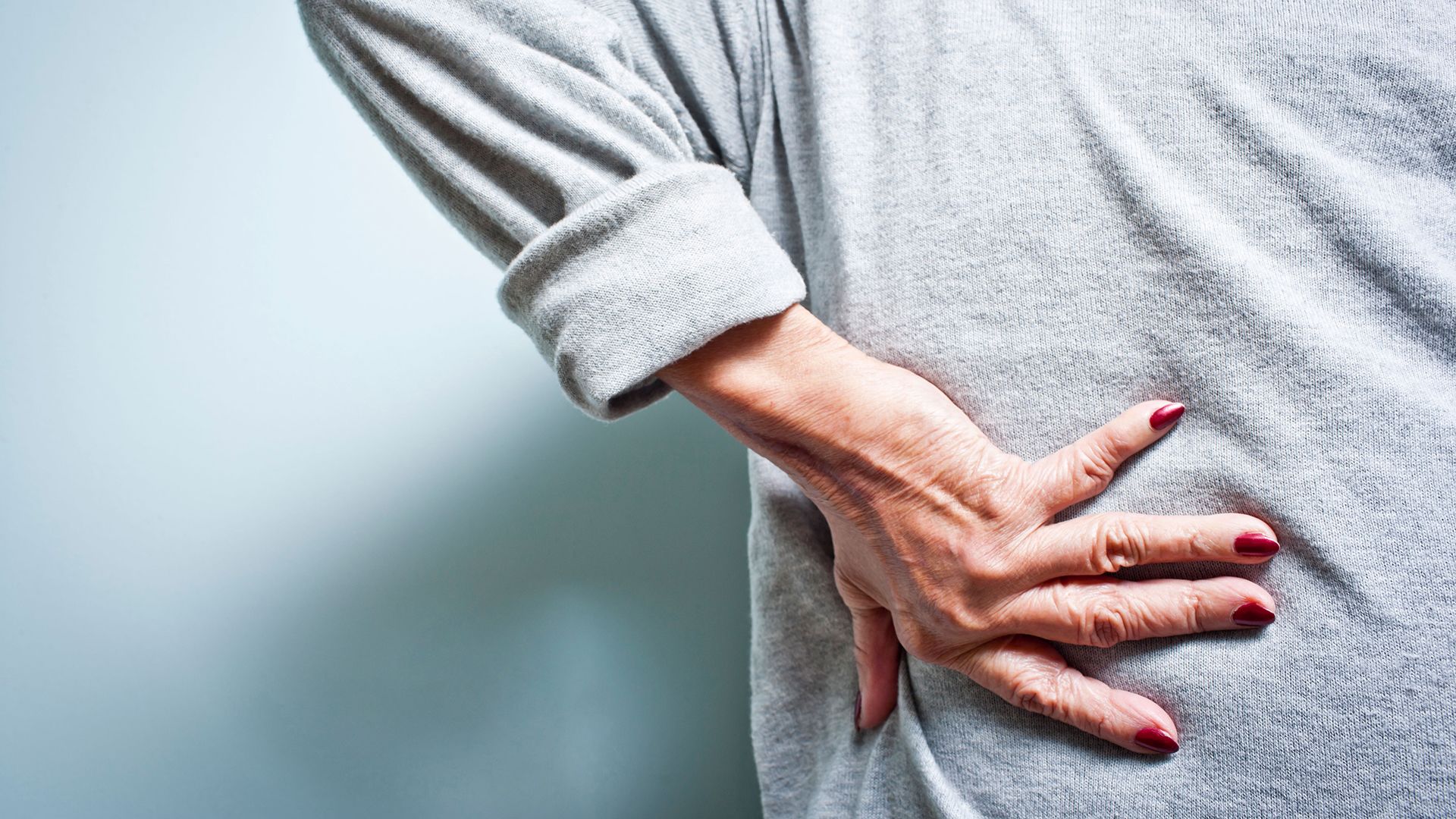
article


video


video


video


video
